Special for the Armenian Weekly
VENICE, Italy (A.W.)—Award-winning director Fatih Akin’s historical epic “The Cut” premiered on Sun., Aug. 31 at the 71st Venice International Film Festival as part of the feature films competition program. Akin, along with the cast and producers, were present at the screening on Sunday afternoon at the Palazzo del Cinema in Lido, Venice, which was attended by more than 2,000 movie buffs and critics.
“The Cut,” which is about the devil inherent in man, concludes Akin’s trilogy on love (“Head-On”), death (“The Edge of Heaven”), and the devil. The film deals with the Armenian Genocide and tells the story of one survivor, Nazareth Manoogian. French-Algerian actor Tahar Rahim plays Nazareth, who is struck mute after narrowly escaping death. Nazareth learns that his twin daughters may still be alive, and journeys across the world in a desperate search to find them.
‘Being of Turkish origin and playing an Armenian, I felt a huge pressure. I wanted to do my research, because, honestly, I didn’t know about the Armenian Genocide. When I found out about what actually happened, I felt the spirit of those 1.5 million and maybe more people who suffered. I wanted to honor those people. I wanted to give them respect that maybe they didn’t have in life. I felt a huge responsibility and I was honored to play that role. Hopefully the film can bring some reconciliation. I am not afraid of threats also, because we have justice on our side,’ Gazi told the Weekly.
“Art is worth dying for,” said Akin before the screening, in response to a journalist’s question about the latest death threats against him by nationalist groups in Turkey, which intensified after the publication of his interview with Agos, an Armenian newspaper based in Istanbul. “I spent seven years to prepare for this film and the controversies that would follow it, and now I am psychologically ready. But I do not want to focus on this issue. I want people to see this film first as a drama, as a western, as a work of art, so then it becomes like a billiard ball that moves the rest of the balls on the table.”
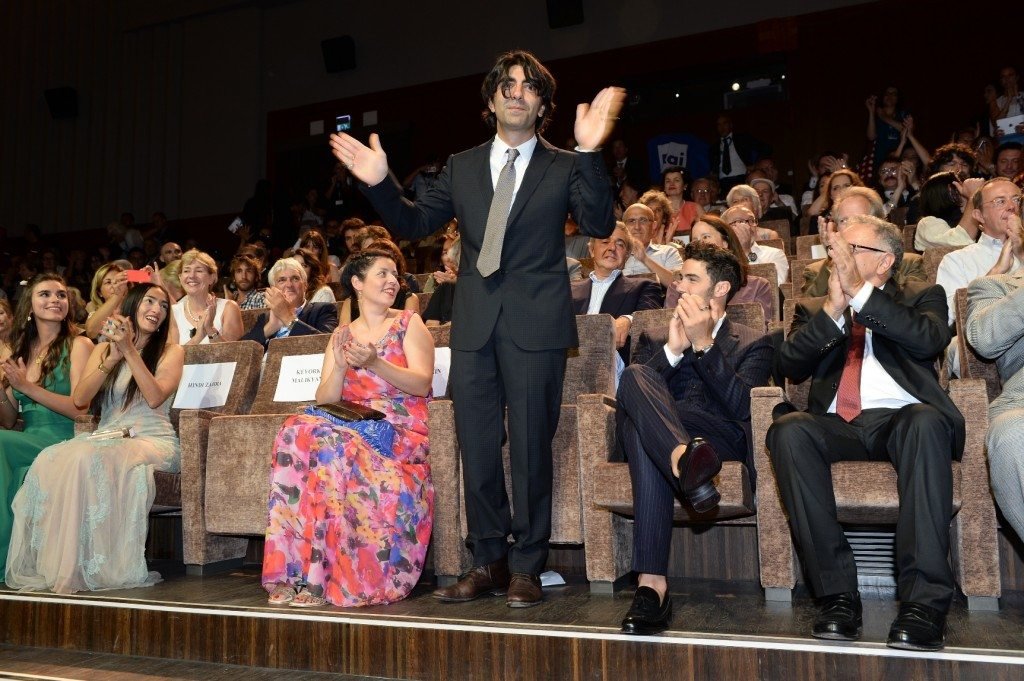
Mardik Martin, an Iraqi-born Armenian cinema professor at USC and a Hollywood veteran, returned to scriptwriting for “The Cut” after a 34-year break; he last worked for Martin Scorsese on “Raging Bulls” in 1980. He re-wrote the screenplay for “The Cut,” which he considers a western.
“In a way, yes, it is a western, because at that period the whole Ottoman Empire became like the western badlands, where mass killings were very common and Armenians were the weakest chain—with no arms and guns to fight back. They were picked on by everybody,” said Martin in a pre-press conference interview with the Armenian Weekly.
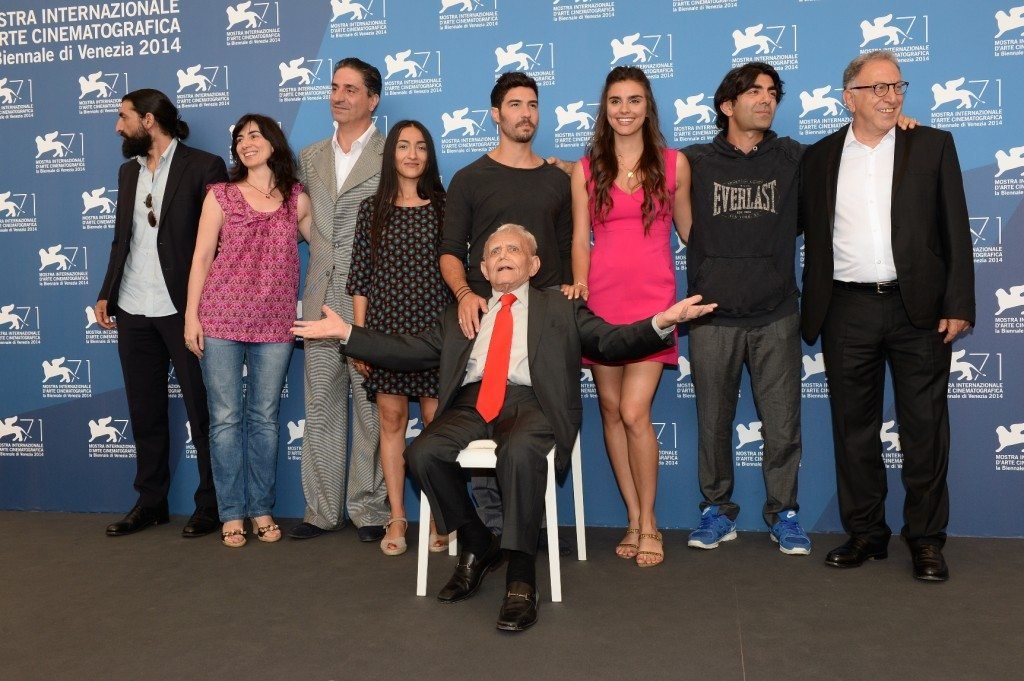
Many actors from Akin’s past films are featured in “The Cut,” among them Moritz Bleibtreu, Adam Bousdoukos, and Onder Cakar. Akin, however, depended more on Armenian actors this time. “It gives more authenticity. I tried to include good Armenian actors as much as I can,” he said.
Renowned French-Armenian actor Simon Abkarian plays a supportive role in the film, as Krikor, another Armenian Genocide survivor. In an interview with the Weekly following the screening in Venice, Abkarian talked about Akin’s Turkish background, and what it brought to the film. “I thought that I had to be in this movie because for me it is a political statement. And of course, Fatih is a great director, after all,” Abkarian said. “I hope many Armenians will go and watch this film. We think we know our stories, but in fact we don’t. We have to tell it over and over again to understand it. We have to call crime and justice by their names. We also have to leave space for discussion between all of us, a space of intelligence. For now, only art is doing this, not politicians.”
“It’s been almost three to four years now, that some people in Turkey have started to face their history. It’s time for an awakening for them. We are here, we are not afraid anymore, because we were dead once—we cannot die twice. But they can kill themselves by denying it. Because if you deny it, you will kill the next one, and the next one, until one day you kill your shadow, and there will be nothing left. To continue on the right path, they must establish a sense of common truth between them and Armenians,” he added.
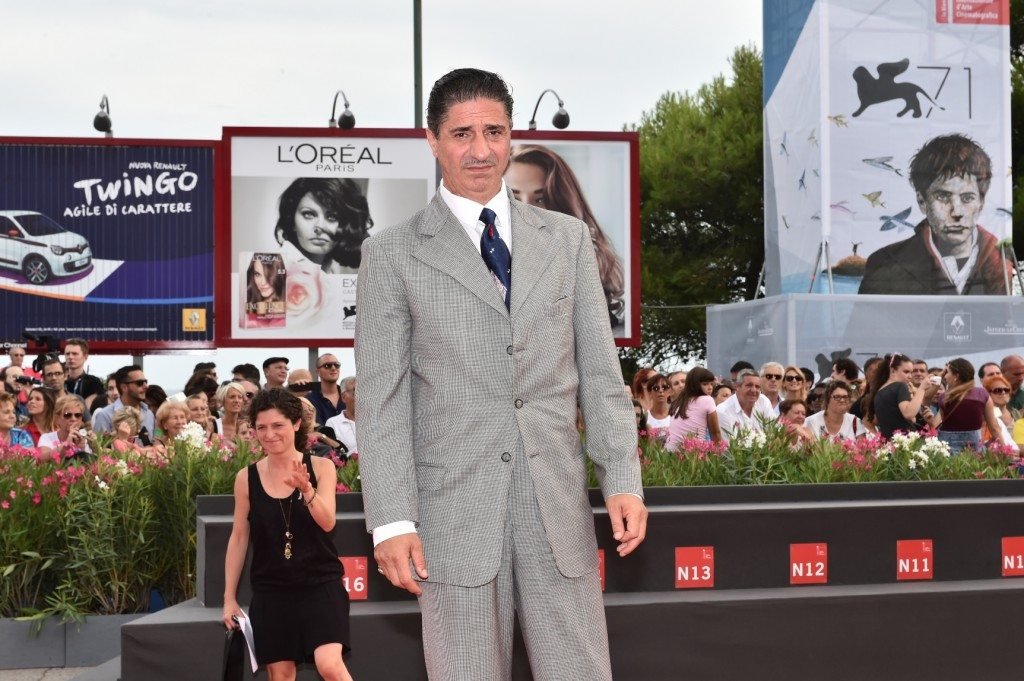
Also featured in the film is Diyarbakir-born Armenian actor Kevork Malikyan. He told the Weekly that it is wonderful that someone like Akin has had the bravery and vision to make this film. Malikyan, like Akin, hopes that “The Cut” will be shown in Turkey, and that it will be accepted for the story it tells.
“When I started this project my goal was to make Armenians and Turks come together to watch the film and take their share of lessons from it,” Akin said. “My goal is to have this film establish a bridge between them—even if the price of that bridge might be the criticism of the west,” he added, referring to the negative reviews by European film critics over his decision to have the Armenian characters speak in English.
The $20-million budget film is likely to be shown in Turkey, according to Akin. “While writing the script, I always had the Turkish audience in my mind,” he said. Up until now, most of the reviews in the Turkish press have been positive, which may be due to the media’s efforts to self-distance from the far-right groups that made threats almost a month before the premiere.
Actor Akin Gazi, who plays the role of Nazareth’s slain brother, has Turkish-Cypriot roots. Growing up, he never heard any mention of what happened in 1915; instead, he was raised with the basic government version of history. “When you take a role on, there’s always pressure,” he said. “Being of Turkish origin and playing an Armenian, I felt a huge pressure. I wanted to do my research, because, honestly, I didn’t know about the Armenian Genocide. When I found out about what actually happened, I felt the spirit of those 1.5 million and maybe more people who suffered. I wanted to honor those people. I wanted to give them respect that maybe they didn’t have in life. I felt a huge responsibility and I was honored to play that role. Hopefully the film can bring some reconciliation. I am not afraid of threats also, because we have justice on our side,” Gazi told the Weekly.
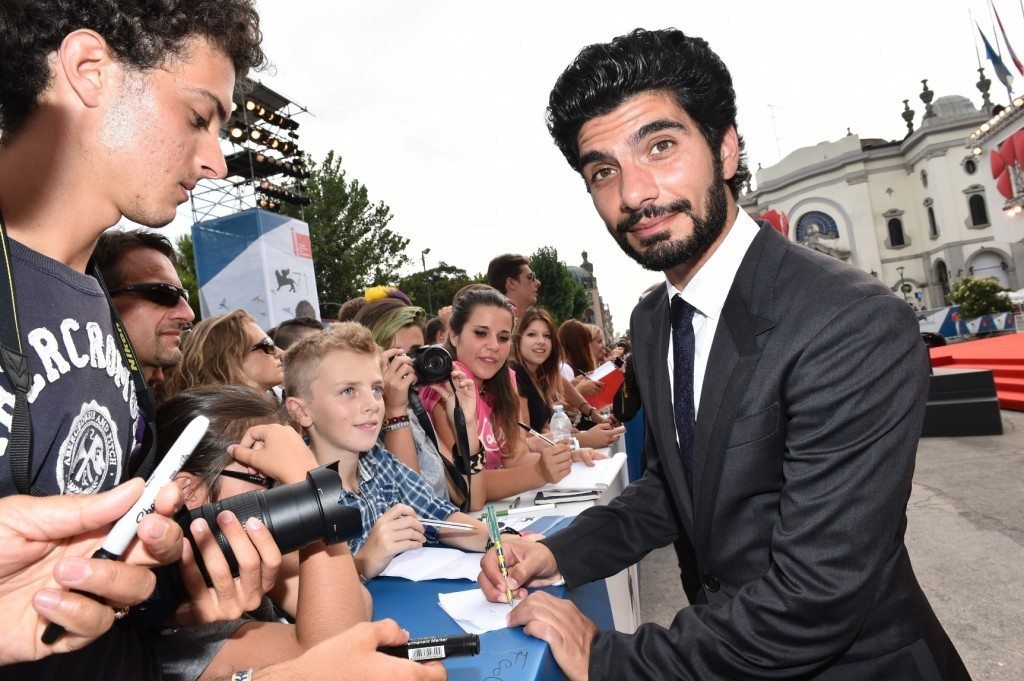
Akin believes that massacres, deportations, and wars are still going on in the Middle East because the suffering of 100 years ago—not only of the Armenians, but of others, too—was never properly addressed.
“Because of the tragedy in his life, Nazareth, the main character, loses his religion,” Akin said, back at the press conference. “But throughout the story, he discovers spirituality again. I mean, he has hope. And whenever there is hope, there is a certain kind of spirituality. This is the journey of the hero—to get rid of the bounds and the dogmas and get to the point, to the essential.”
According to French-Armenian actress Arevik Martirossyan, who plays the role of Nazareth’s sister-in-law, Akin knows exactly what he wants. “He has a great energy to gather things around him. He notices everything and it was a great pleasure to work with him,” she said.
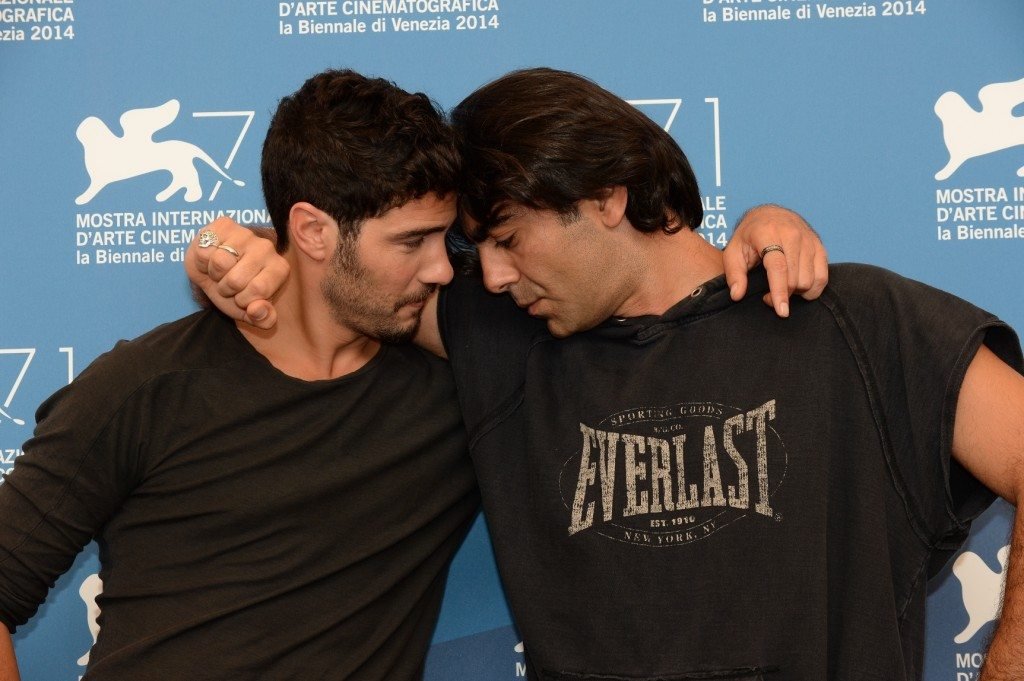
The 71st Venice International Film Festival concluded on Sept. 6. The Hamburg Film Festival—in Akin’s hometown—will also host the German premiere of “The Cut” on Oct 16. In Hamburg, Akin will be presented with the Douglas Sirk Award recognizing his work both as a director and a producer. “He has set an example for a whole generation of filmmakers, both in Turkey and Germany,” said Albert Wiederspiel, the director of the Hamburg Festival, in his official announcement. “His films were a starting point of a whole movement of German filmmakers of Turkish origin.”


Neither stones nor roses are being thrown at Mr Akin, as he predicted they would be. The film flopped. Sadly, Armenians have not been able to turn the story of 1915-1920 into great cinematographic art.
I like the ARMENIAN WEEKLY! Thanks a billion!
when will there be showings in the USA/EAST COAST/
when and where can I see The Cut in Southern California? thank you for making the film